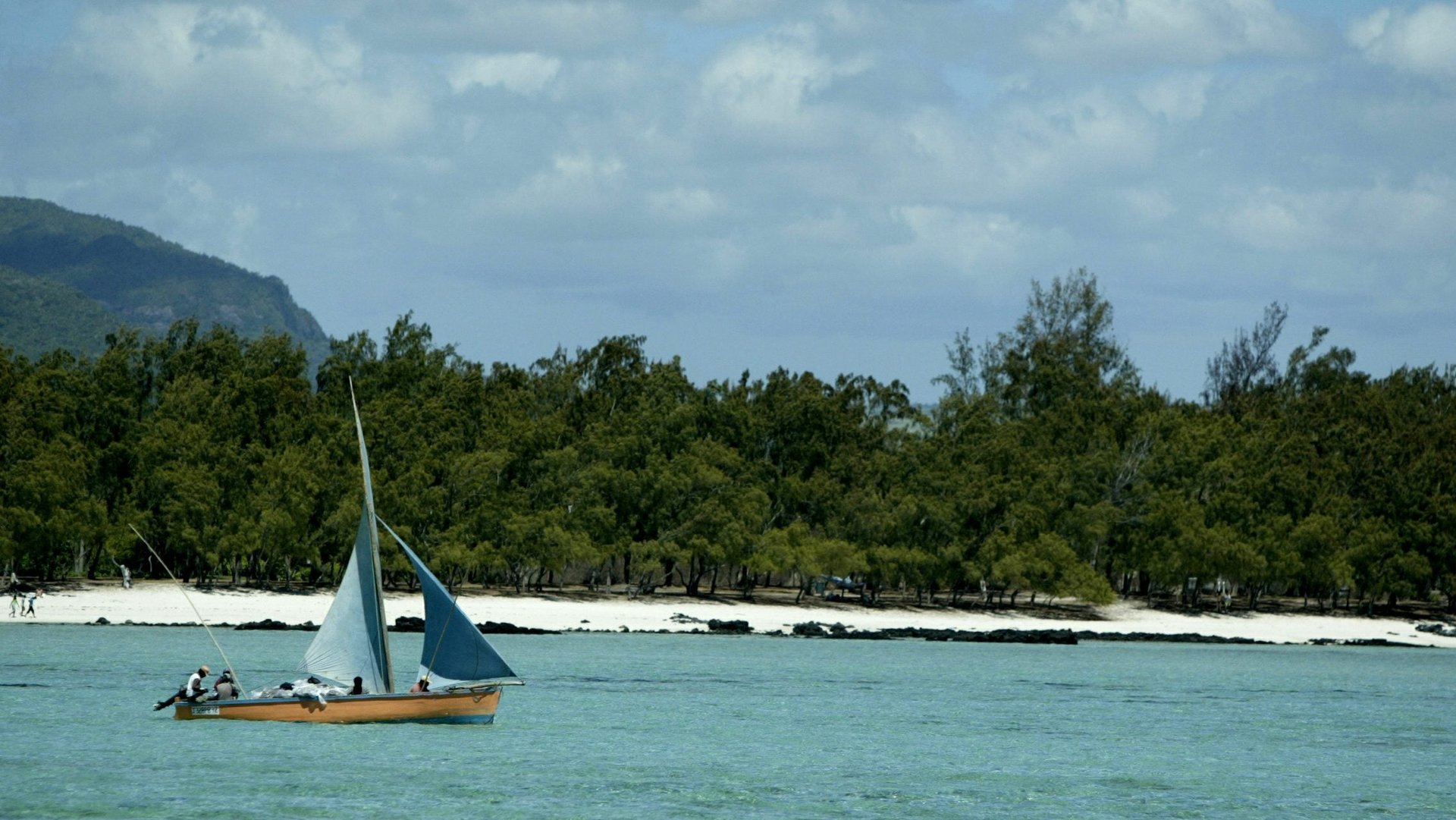How an idyllic African island became a tax haven for some of the world’s biggest corporations
Mauritius is a country of white coral beaches and low mountains located off the southeast coast of Africa in the Indian Ocean. Since gaining independence in 1968, the country has been dubbed a miracle: a stable democracy with a robust economy that provides free education and healthcare to all its 1.3 million inhabitants. This middle-income country is often one of the few positive exceptions on global development indexes for Africa.


Mauritius is a country of white coral beaches and low mountains located off the southeast coast of Africa in the Indian Ocean. Since gaining independence in 1968, the country has been dubbed a miracle: a stable democracy with a robust economy that provides free education and healthcare to all its 1.3 million inhabitants. This middle-income country is often one of the few positive exceptions on global development indexes for Africa.
Yet this success story has long been shadowed by financial secrecy, with the island state overseeing legal but questionable processes that have allowed global companies to siphon millions of tax dollars away from low-income African nations.
The journey to becoming an offshore financial hub started in 1989 as Mauritius sought to move away from agricultural dependence and diversify its economy. Positioning itself as a “gateway to Africa,” officials embarked on a plan to become the jurisdiction of choice for investors and multinationals seeking to invest in Africa. This plan was solidified through the enactment of the 1992 Mauritius Offshore Business Activity Act, which enabled foreign entities to incorporate companies with limited public disclosure, extremely low or no taxation, besides high levels of privacy and asset protection.
Mauritius also signed double tax avoidance agreements (DTAA) with 46 states worldwide, 18 of them from Africa. These bilateral agreements encourage investment by ensuring investors from one country operate in another without being taxed twice on the same income. But they also paved the way for abuse, allowing multinationals to shield their assets and profits from the prying eyes of authorities and the public.
“Governments of host countries are typically put under great pressure to sign what are often highly disadvantageous treaties,” Alex Cobham, who leads the London-based advocacy Tax Justice Network, says of the DTAA. Research from the UN World Investment Report has demonstrated that losses to lower-income countries from allowing investment through conduit dominions with tax treaties, such as Mauritius, run up to $100 billion a year.
But while some countries sign these treaties to boost investment or enhance diplomatic ties, Cobham says some sign them “out of fear” that if they don’t offer attractive terms, they “will not receive needed investment.”

Tax haven
In the three decades since Mauritius turned itself into a desirable financial hub, the country has been criticized for impoverishing African governments and widening wealth inequality. Even as the number of millionaires in the island rapidly grew, the United Nations Economic Commission on Africa in 2013 censured Port Louis for deepening the exposure of African states to illicit financial flows.
In 2015, the European Union placed Mauritius on its top 30 tax blacklist nations; Oxfam listed it as one of the world’s worst tax havens in 2016; and the 2018 Financial Secrecy Index gave it a 72.3 score out of 100 for enabling questionable tax avoidance maneuvers.
Offshore legal services provider Appleby and accounting firm Deloitte have both been accused of taking advantage of these lenient tax measures and advising their clients—including Yale University—on how to maximize their profits.
The structure of these treaties has also run into legal quagmires, especially in India, where the government couldn’t collect $2.2 billion from Vodafone’s acquisition of an Indian operating company through offshore firms including one in Mauritius. In March, Kenya’s high court ruled that the legal notice that brought the two nations’ joint DTAA into operation had not been laid before parliament as required by law and was thus invalid.
“The annulled treaty was problematic because it ceded a lot of taxing rights to Mauritius,” says Catherine Ngina Mutava, associate director of the Tax Research Center at Strathmore University in Nairobi. Much like in the India case, Mutava says the “treaty provided that sale of shares in a company would be taxed in the country where the sale of the shares happened.”

Improving the tax regimes
Some investors will say they prefer to use Mauritius-domiciled entities because the tax and investment regimes in countries like Ethiopia are not yet up to par with international standards. But Cobham says they shouldn’t “try to weasel out of their responsibilities” of paying taxes instead of lobbying governments “to improve the regime for all businesses.” Mutava also argues investment decisions are usually not just based on taxation but a slew of other conditions including infrastructure, economic conditions, security, and political stability.
In written responses to Quartz’s partner International Consortium of Investigative Journalists, Mauritius says its tax accords were based on a blend of global and UN tax treaties and that it renegotiated 60% of those deals since 2009. It was also currently renegotiating terms of agreements with six countries.
Despite the assurances, Cobham says “it’s hard to put a number on the damage that Mauritius individually has done to other African countries. This is partly a “data problem,” he argues, because “we still lack detailed numbers on the scale of dividend, interest and royalty payments that leave other African countries under their treaties with Mauritius.”
While there’s a need for comprehensive global solutions on tax avoidance regimes, experts say African government could also take steps unilaterally or as regional blocs. This could include introducing a minimum tax for corporate profits or signing the Multilateral Instrument which allows signatories to amen DTAAs and curtail “treaty shopping” by limiting who can enjoy the benefits.
In thinking about Mauritius, international tax researcher and doctoral candidate at McGill University, Alexander Ezenagu proposes what he calls a “unitary approach” to allocating income and reducing revenue loss. This tax system, he says, treats multinational corporations as single economic entities that “produce consolidated accounts and one income and profit statement.” The profit—or loss—is then divided among the nations based on a pre-agreed formula designed to represent the contributions of the related entities to the profit or the economic activity or presence of the group activities in the taxing jurisdictions.
This approach, he says, “employs a formula for dividing the income of a multinational business among the locations in which it is earned.” Ultimately, it would make redundant the residence of a company in nations like Mauritius “thereby limiting the relevance of traditional tax havens.”
Read more of Quartz’s reporting on how the Mauritius Leaks expose global tax avoidance
Sign up to the Quartz Africa Weekly Brief here for news and analysis on African business, tech and innovation in your inbox